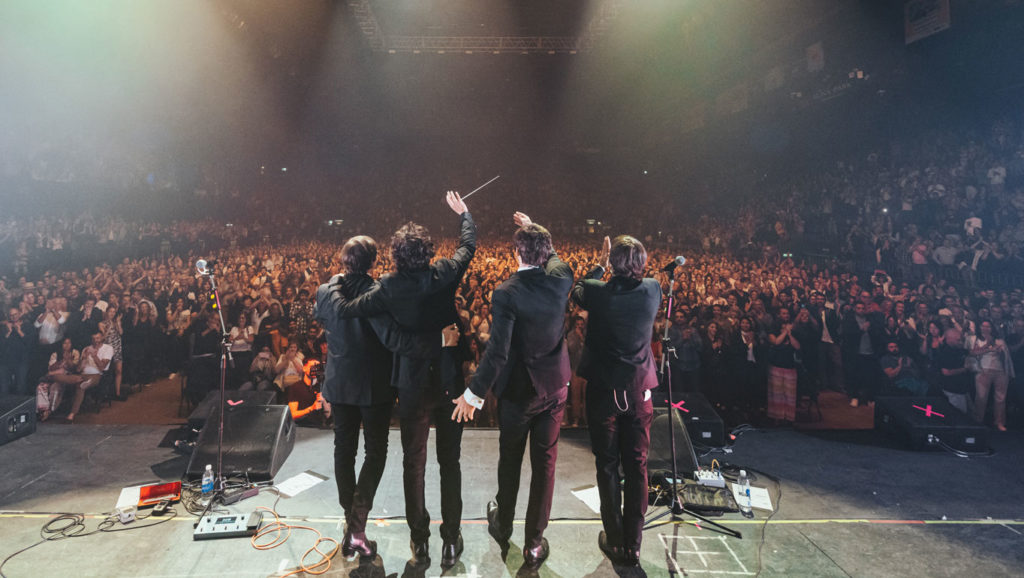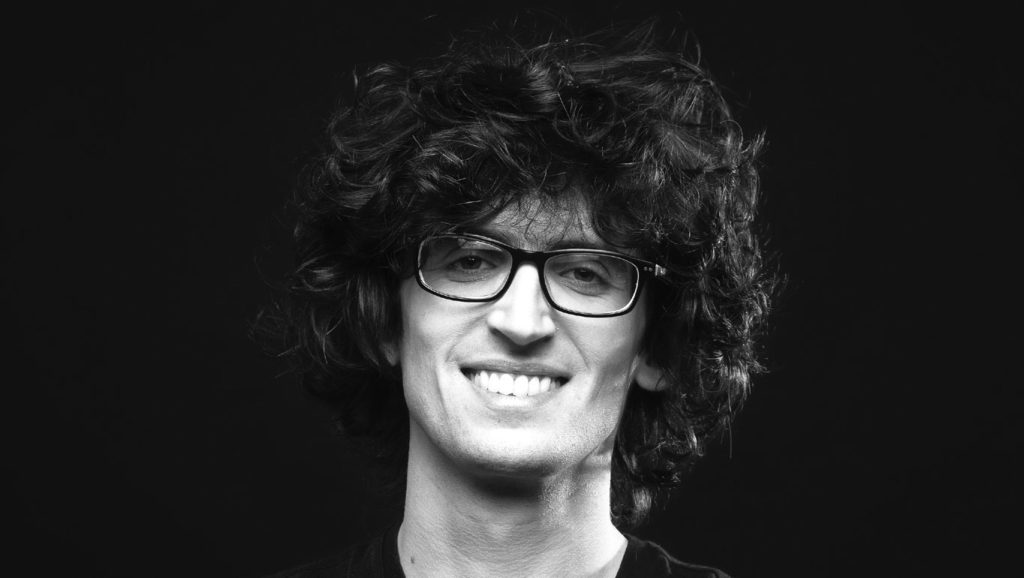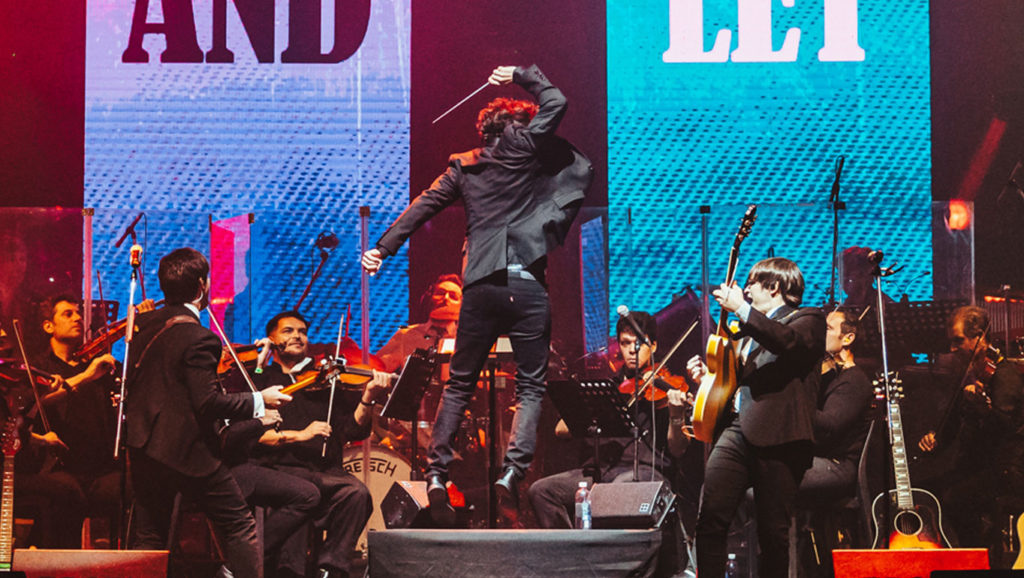Over the years, numerous artists have managed to recreate the genius of the four men from Liverpool. Almost in every country, there are several groups that represent not only their music, but also their iconic looks.
In this case, Damián Mahler incorporates a symphonic side that adds a more than exquisite touch to each piece of music – followed by his passionate and contagious way of conducting an orchestra. Its initial success has meant they are already touring internationally and the show is available for booking worldwide.
How did your connection with music begin and how did it lead you to The Beatles?
My father is a composer and conductor too, so I was fortunate enough to have been heavily influenced by music and theater from a very young age. He introduced me and my brother to the world of music smoothly, never putting pressure on us, which ultimately inspired both of us to become musicians.
When I turned 13, I received three CDs as a birthday present, one of which was a Beatles album. I remember being very moved by ‘Yesterday,’ because of the song’s beauty, and the strings playing the wonderful arrangement. I think The Beatles’ music is one of those things that become more important to you as you grow up. Every day, I feel like I understand them a little bit more, and on the other hand (and I know it may sound contradictory), I can’t understand how they managed to literally change how millions see the world through music.
What triggered the idea of combining The Beatles’ rock with a symphony orchestra?
During the pandemic, at Sira Music, we began developing concepts that blend pop-culture elements with symphony orchestras, and The Beatles were one of the first ideas we had in mind. Their music and message continue to resonate; it’s still powerful and full of joy.
As a teenager, I loved listening to Queen as much as I enjoyed a Beethoven symphony. At one point, I discovered that many rock bands (like Metallica, Scorpions, and Deep Purple) had performed shows combining their music with a symphony orchestra, and I thought that was extraordinary. Being a classical and rock music enthusiast, the idea of seeing how those different worlds could come together and embrace each other blew my mind.
Even though The Beatles didn’t get to do this kind of events, they were very keen on including symphonic instruments, melodies, and gestures into their music. I would even bet they were among the first to do so, at least in the way they did it. I think that might have triggered the idea: to expand upon what they initiated through their music.
It’s not only mind-blowing to see how beneficial these inclusions were, but has also been a great challenge to arrange this music. How do you add something to perfection?

What are the main components of the show you are presenting?
Even though it’s an enormous production –a 50-piece orchestra, a rock band, over 100 minutes of animations inspired in the band and their songs, and a marvelous lighting design– I believe, in the end, it’s all about their message through music. We gathered to celebrate the 60th anniversary, and I can say without any doubt that this music will stay with us forever.I feel that this music is as necessary today as it was in the 60s.
The show’s audience extraordinarily brings together grandparents, parents and children singing the same message. What does this mean to you?
This is one of the things we love the most about this show: witnessing generations connected through music. We live in a world that has a tendency to divide, and it’s really heartwarming to see them hugging, singing, and even crying together. I receive numerous messages through social media, with people sharing how this show evoked memories of their childhood or significant moments in their life. The nostalgia factor kicks in and enhances the experience immensely.

The Beatles were renowned for singing songs about peace during difficult times. Do you think it’s appropriate to replicate that at this particular time?
Certainly. The Beatles were renowned for their ‘peace and love’ statement, which they repeated over and over, especially during challenging times. In this regard, I truly believe that today’s mainstream artists could be even more influential than The Beatles were in promoting peace, considering their greater access to platforms and resources to spread the message.
Why is this show important for young people?
Once again, I believe the music and message of The Beatles are still relevant today. Maybe it’s too personal, but I even consider that life is better with their influence, as it happens with many great artworks. I could say the same about many marvels of 20th-century art. I think everyone should have the chance to get to know them, and then ultimately decide whether it becomes a part of your life or not. This show provides that opportunity: to hear their music live, meticulously taken care of, and to experience their impact on others firsthand.

Imagine you’re going on an international tour. If you had to choose your dream audience to present this show to, what would it be like?
We’ve already toured different cities in México, Spain, Chile and Argentina. Even though one might think audiences vary from country to country (which of course they do) there’s a common factor that we feel very emotional about: this music belongs to the people who listen to it; it’s part of their life, part of who they are. They come to our show as a way to celebrate this sense of belonging. This particular detail, which ultimately gives the show its real purpose, doesn’t change no matter where we are.
If I had to choose our dream audience, it would be, of course, Liverpool. I’d love to see their reactions to these versions of the music that was created right there, in those streets. Can you imagine playing ‘Penny Lane’ just some blocks away from the Barber Shop depicted in the song? That would be a dream come true.



